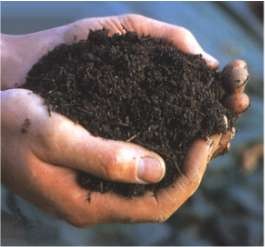 FLORIDA - Whether you're an apartment-dwelling window box gardener or a homeowner with a sizable spread, composting is a simple operation that will provide a bounty for your plants while helping cut down on landfill waste.
FLORIDA - Whether you're an apartment-dwelling window box gardener or a homeowner with a sizable spread, composting is a simple operation that will provide a bounty for your plants while helping cut down on landfill waste.What is compost? Basically, it is organic matter that has been broken down by the action of insects and microorganisms into a rich substance that loosens soil, improves moisture retention and provides a tremendous host of nutritional benefits. Frequently, compost gardeners will find that they no longer need to buy chemical fertilizers and soil amendments.
How you compost will depend on your needs and your space availability. For apartment gardeners with a small patio, there are small barrel-type composters available at most garden centers and online. They usually consist of a small metal or plastic barrel with a hatch and a crank for turning the contents. They will turn out a batch of perfectly finished compost in a very short time.
For those you with a yard, the options are far more numerous. You can construct a "free-form" heap, with your items piled up loosely, although they don't work as efficiently and can be difficult to keep weed-free. The cheapest route, and the one most-used by hardcore composters, is the chicken-wire enclosure, using either 3- or 4-foot wire to make a circular enclosure of roughly the same diameter.
If you have wooden pallets, they can be nailed together to make an outstanding heap. Use heavy-duty hinges on one side to make it easy to open for turning and emptying.
Basically, any material that can be used to build a round or square enclosure can be a compost heap. The important thing is what goes into the enclosure ... namely just about everything. Grass clippings, leaves, plant trimmings and other non-weed yard waste is a good foundation, but don't forget about your kitchen. If you're a coffee drinker, your grounds (filter, too!) should go into the heap. They'll provide moisture and a great source of trace minerals. Making a salad? Put those trimmings, stems and skins into the heap. Even your breakfast-time eggshells make great compost, adding more minerals to the mixture. Anything organic can go in, but avoid meat and bones, as they will attract pests, not to mention the stink. You want a compost heap, not a junk yard.
As far as maintenance goes, you can do as much or as little as your schedule allows. The more often you turn the heap, the faster it will break down and provide you with your end result. I tend to let my three heaps fill, turning them occasionally, all during the spring and summer, then break them open in the fall and winter, when it's time to work the flower beds in preparation for spring planting.
Keep the heap moist, although if you have an open-topped heap in an average climate, Mother Nature should take care of that fairly well. Again, the more attention you pay to proper moisture levels, the faster you'll get your finished product.
When you do "harvest" your compost, be sure and save a couple of bucketfuls to use as "starter" for the next go-round. That will provide a dose of the microorganisms and bacteria that dig in and start munching on your raw materials.
And where can you use your black gold? Anything green and growing will benefit from a dose of compost. For new plantings, use one part compost to four parts soil. For existing plants, in pots or gardens, gently work a layer of compost into the top layer of soil around the base of the plant. You can even spread it in your yard by hand or with a broadcast spreader to make your grass the envy of the neighborhood and help cut down on your watering.
One final tip for those of you using traditional on-ground heaps: Every couple of years, change where they are placed. Plant pumpkins in the old spots. You'll grow the biggest jack-o'-lanterns ever!
from NBC6
No comments:
Post a Comment